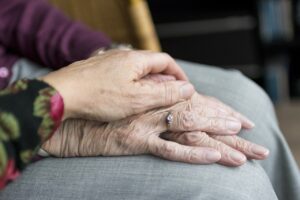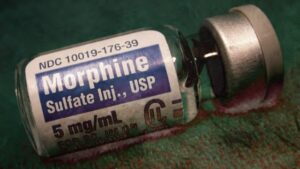“You need to make this patient go bye-bye.” According to an FBI affidavit, these are the words of Brad Harris, owner of a Dallas-area hospice. The document also stated the likely reason for hastening the patient’s death. Federal reimbursements may decrease the longer a patient is there.
The question of hospice’s role in hastening death has been around for a long time. And with good reason. Evidence continues to show that hospices, like all medical entities, are motivated by the income their services generate.

My interest in this topic peaked while host and executive director of our then weekly TV program, Facing Life Head-On. In spite of my producer’s best efforts, we couldn’t locate a hospice willing to state on record they do not withhold fluids or nutrition that result in a patient’s death. Such a hospice facility likely exists, we just couldn’t find one.
The denial of fluids and nutrition has been a stapple of hospice facilities across the nation. It was nowhere more evident than at Suncoast Hospice in Pinellas Park, Florida. This is where Terri Schiavo endured 13 excruciating days without food or water until she succumbed to death. Her ordeal attracted worldwide attention.
Evidence shows that a more palatable tool is now used for hastening death. It is terminal sedation, or as advocates call it “palliative sedation” that causes the patient to become unconscious. Morphine impairs respiration and if that doesn’t cause death, the lack of nutrition and hydration will likely do the job “within a few days.”
Michelle Young Doers, a highly credentialed and experienced certified respiratory therapist and certified pulmonary function technologist, worked many years in the hospice industry. What she witnessed so alarmed her she wrote a book titled Killing For Profit, The Dark Side of Hospice.
Michelle wrote that as of June 2019 there were over 600 published reports of criminal wrongdoing on the part of hospice organizations on the Department of Justice website.
As our population ages there will be more pressure and incentives to usher patients into an early grave who are perceived as less valuable to society. If your loved one’s life becomes threatened at life’s end, reach out to the Terri Schiavo Life and Hope Network for helpful resources including their Crisis Hotline.
Protecting Life,
Leave a Reply